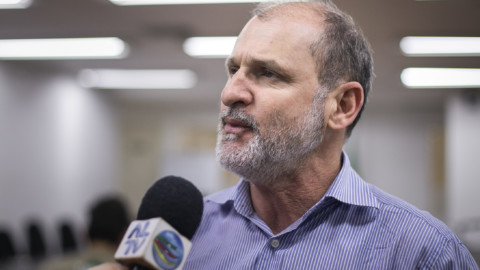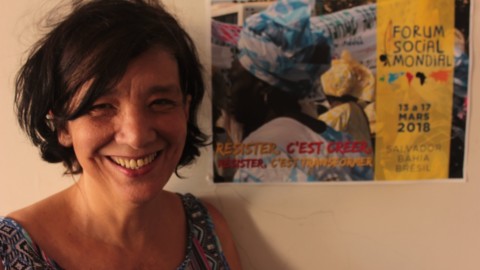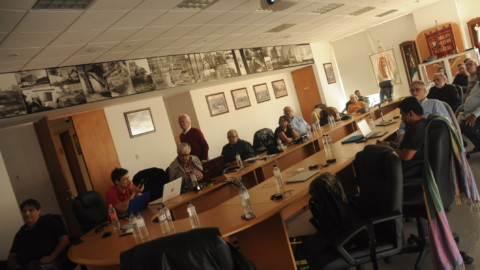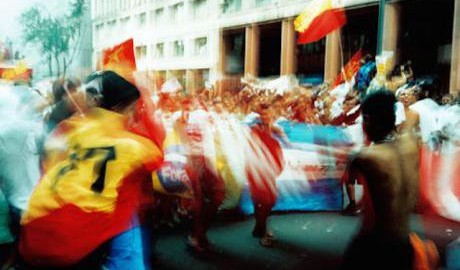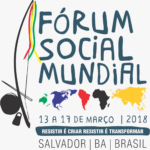The World Social Forum cannot yield to the old practices that centralize and verticalize power
 Oded Grajew – In January, 2000, the World Economic Forum triumphantly announced the end of History with the adoption of a neoliberal model that supposedly would lead the world to prosperity, peace, and quality of life for all. The opponents were treated as fools and radicals who only knew how to criticize, without being able to offer any alternative. Outraged, I had the idea of creating the World Social Forum, that is, to create a space, a process, in which civil society’s organizations, leaders, and activists could meet, articulate, and gain political strength to move their struggles forward; to reduce dispersion and, consequently, the fragility of civil society; to give opportunity to alternative proposals and initiatives, showing that “another world is possible”, both in theory and in practice, in which economics and politics would serve social justice and sustainable development. I invited a group of Brazilian organizations, who were charged with operationalizing the idea. This group selected international entities to form the International Council, which prepared a charter of principles that consecrated the idea of the forum as a process, a self-organized space, in which protagonism of activities and political initiatives would come from civil society organizations.
Oded Grajew – In January, 2000, the World Economic Forum triumphantly announced the end of History with the adoption of a neoliberal model that supposedly would lead the world to prosperity, peace, and quality of life for all. The opponents were treated as fools and radicals who only knew how to criticize, without being able to offer any alternative. Outraged, I had the idea of creating the World Social Forum, that is, to create a space, a process, in which civil society’s organizations, leaders, and activists could meet, articulate, and gain political strength to move their struggles forward; to reduce dispersion and, consequently, the fragility of civil society; to give opportunity to alternative proposals and initiatives, showing that “another world is possible”, both in theory and in practice, in which economics and politics would serve social justice and sustainable development. I invited a group of Brazilian organizations, who were charged with operationalizing the idea. This group selected international entities to form the International Council, which prepared a charter of principles that consecrated the idea of the forum as a process, a self-organized space, in which protagonism of activities and political initiatives would come from civil society organizations.
The forum would not be an organization, an entity. It would not have a president, board of directors, or spokespeople, and the council, which is not elected, would steward the process.
In January, 2001, the first World Social Forum was held in Porto Alegre, with impressive participation of civil society that grew significantly in subsequent forums. Political innovation—favoring process and self-organization, not established in a verticalized, centralized, and controlling organization—allowed meetings to be held with relatively few resources, the participation of thousands of organizations and activists, and the multiplication of forums around the world. The success of the WSF, first and foremost a result of its political innovation, began to attract the interest of several traditional organizations and leaders who, not wanting to share and democratize protagonism and visibility, tried to hijack the process. They wanted to return to the old practice of verticalized, centralized
Being captured by groups or political parties and their specific interests would make the initiative irrelevant.
They do not accept the diversity and plurality of civil society and its independence from governments and political parties. And, more recently, they wanted to change the charter of principles so the forum would be transformed into an organization governed by the council or by a group of organizations that takes stances and speaks on behalf of all of them, and of the WSF itself, and defines the hierarchies and priorities (see the interview and article by Boaventura de Sousa Santos in Carta Capital). They claim that the council is silent, that the forum is unproductive, and that it should take stances, make statements, and prepare manifestos. The allegation that there is no positioning within the WSF is fallacious. Each organization has total freedom and is even encouraged to take a stance and make statements on their own behalf or in the name of all the organizations that want to join with it.
It is necessary, however, that each organization strives towards and gains legitimacy to articulate alliances and give political strength to their positions. All are on an equal footing and are able to manifest themselves democratically in the name of other organizations and leaders who subscribe to their manifestos and can give their initiatives the desired or possible visibility. What they are not is entitled to express themselves in the name of all participants or of the forum, regarding participants as pawns in service of a corporation, of a movement, of a political party, or of a government. This would be manipulation and the usurping of power. It would be repeating the same old process that did such harm to the left: struggles for power, cooptation by governments and political parties, control that suffocates criticism, and authoritarianism that attempts to eliminate divergence and diversity.
The forum is not an organization and the council, I repeat, is not elected, nor is it a particular group of organizations that has been sent to speak in the name of all others. Protagonism is not of the forum, but of the organizations, the leaders, and the activists. It was this political innovation that attracted so many people and so many organizations, that valued diversity, and that facilitated articulations resulting in the strengthening and creation of movements that drove the left to power in Latin American countries over the last decade. The challenge for the World Social Forum, as described by Chico Whitaker, is to continue to create “conditions for mutual recognition and for overcoming prejudice, competition, and mistrust among social movements, to facilitate the identification of convergences and the construction of alliances, without hegemonies and respecting the differences in types of actions and strategies, preventing its manipulation by organizations, governments, or political parties”. It is essential to maintain and deepen an innovative political practice consistent with “another possible world”.
A new edition will be held in Salvador, from March 13 to 17, 2018, made possible through the dedication of the Brazilian and Bahian collective, with support from the council. It will be a world event that will try to create resistance to maneuvers that attempt to stifle democratic processes and popular participation, taking away hard-won rights, and it will also seek alternatives and promote articulations. In a time of great ethical, political, and social setbacks, the participation of those who share the principles, values, goals, and hopes that have always fed the World Social Forum is essential.
Oded Grajew – Idealizer of the World Social Forum, president of the deliberative council of Oxfam Brasil, he was a special advisor to President Lula (2003), creator of the Abrinq Foundation, Ethos Institute, Nossa São Paulo Network and the Sustainable Cities Program. Article from Carta Capital, December 8, 2017
